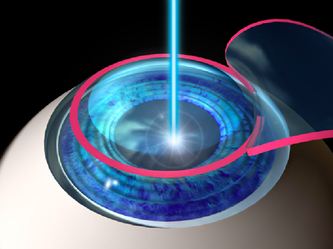Welcome to the Virtual MS Center!
Ask any question you want about Multiple Sclerosis and one of our experts will answer it as soon as possible.
|
Here is My Question:
I have been taking tecfidera for nearly 12 months now. I feel sleepy 24/7 and just not well. My white blood count has been low enough in tests taken over the last 4 months to have my GP wanting to know why. I'm thinking he might be missing a conection between that and Tecfidera. Am I right? Will I feel better if I stop taking it? Please help. Answer: Tecfidera is known to reduce white blood cells. In fact, the average reduction of lymphocytes (type of white blood cell) is 30% from baseline (the number seen prior to start of Tecfidera). However, approximately 7% of patients may see a severe drop in lymphocytes (usually seen in the first year on Tecfidera) which can open the door to significant infectious risk. In this case, I take patients off Tecfidera and monitor the repopulation of lymphocytes as I determine when to start a different therapy. Here is a link to a review paper I wrote this year on tecfidera that discusses this topic and my general approach to this issue: https://www.dovepress.com/advances-in-the-management-of-relapsingndashremitting-multiple-scleros-peer-reviewed-article-DNND I would recommend you discuss this with your prescribing doctor to determine the right course for you. A. Scott Nielsen MD MMSc Neurologist and MS Specialist at Kaiser Permanente #Tecfidera #multiplesclerosis Question:
Why is it that my pain tolerance is so high that I take Tylenol #3 with codeine , Tylenol #4 with codeine, Norco 5/325, and Oxycocin and still have pain. However with I'll take 2 puffs of CBD in the morning and then about 4 puffs of coconut oil and another oil using a personal hookah stick and will fill better a lot sooner. But get this, none of it makes me high. Is medicinal a lot safer than vapor? Answer: It may be that you have developed a tolerance to narcotics. It is also likely that narcotics are not appropriate for your pain syndrome. For instance, most neuropathic pain (the type people with MS often experience) responds poorly if at all to narcotics, except in dosing that dull mentation and cause sleepiness. We rarely recommend chronic narcotics for pain related to MS and spend a great deal of time weaning new patients off of narcotics. Most feel much better once they are off of narcotics. Good luck Revere (Rip) Kinkel MD Director of the Multiple Sclerosis Program Professor of Clinical Neurosciences University of California San Diego  Listen to our latest health and wellness interview on food and nutrition for MS! Tad Campbell, MCN, RD, LD is a registered dietitian at the University of Texas Southwestern Medical Center’s Total Life Care (TLC) MS clinic and also serves as the Education Coordinator for the Clinical Nutrition department in UT Southwestern’s School of Health Professions. Mr. Campbell was a faculty speaker at the 2013 Consortium of Multiple Sclerosis Centers conference where he presented “A Global Approach to the At-Risk MS Patient - Role of the Dietitian” along with his colleagues from the TLC clinic. CLICK HERE TO LISTEN TO THE INTERVIEW! Here is My Question:
How does someone know whether or not their eye pain is related to Optic Neuritis? Answer: Typically eye pain due to optic neuritis is described as a soreness/pain behind the eye that is worse with eye movement. Sometimes the pain may preceed the vision loss associated with optic neuritis by a couple of days. However, the only way to know for sure is to have a eye exam by an ophthalmologist. Benjamin Osborne, MD Associate Professor Departments of Neurology and Ophthalmology Georgetown University Hospital Here is My Question:
Can Tecfidera slow down the progression of cancer like it does MS? Answer: There is no evidence that Tecfidera has any affect on Cancer Revere (Rip) Kinkel MD Director of the Multiple Sclerosis Program Professor of Clinical Neurosciences University of California San Diego Here is My Question:
Do you guys recommend a smart phone app that can track subq injections, symptoms and let me journal about side effects? Answer: I have not found an app yet that performs these functions well Revere (Rip) Kinkel MD Director of the Multiple Sclerosis Program Professor of Clinical Neurosciences University of California San Diego  Here is My Question: I have been using medical marijuana since the age of 18 for depression, migraines and insomnia. I was recently diagnosed with MS and didn't notice a relapse until I stopped using medical marijuana. I know it can be used as an anti-inflammatory but I wanted to know if there was particular component to it that is the anti-inflammatory. Such as CBDs, THC, etc. If anyone has knowledge about using medical marijuana paired with my MS treatment what strain would be beneficial, edibles, tinctures. I would like to continue to use medical marijuana but I wanted more knowledge to aid my inflammation. Thank you in advance. Answer: There is very little if any evidence that marijuana (or any of its extracts) has a meaningful effect on mechanisms responsible for tissue injury in MS. There is evidence of symptomatic reductions in pain and spasticity, in particular. A European company has marketed a cannibis extract, Saltivex, which has been approved for use in MS patients in much of Europe and Mexico but not yet in the United states. There is only anectodal evidence of the relative benefits and side effects of various Cannibis stains on symptom reduction. If you reside in a state with legalized marijuana or medical marijuana, the distributors usually can provide information on strain types and their relative benefits and side effects Revere (Rip) Kinkel MD Director of the Multiple Sclerosis Program Professor of Clinical Neurosciences University of California San Diego Here is My Question:
How long do Plegridy side effects last? I have just started the treatment and feel grim it has exacerbated all my current symptoms and added more to the mix. Can anyone who has been on it advise please. I was on Copaxone for years with no side effects but was having problems with injection sites. Tried Tecfidera but that was horrendous on the side effects. I am worried I have made my situation worse. I know MS is not black and white but am struggling to know if I have made the correct decision. It also troubles me that there are I am told only a very few people on it in my area so a small pool of knowledge. Any help would be greatly appreciated 😃 Answer: Plegridy is like any other interferon treatment and associated with the well known 'flu like' side effects. These usually consist of muscle aches, malaise (basically fatigue), fever and headaches. These symptoms from immune activation can transiently worsen some of your MS symptoms. Plegridy is also a subcutaneous injection that can create delayed injection site reactions developing over 1 to 4 days. Of course, the benefits of Plegridy include the sustained action over more than 2 weeks and the reduced injection interval ( every 2 weeks). If you are not able to control the flu like side effects with ibuprofen (600 to 800 mg) three times a day or naprosyn 440 mg twice a day (2 Aleve tablets) beginning the day of injection and continuing for 4 days then switching to prednisone 10 mg twice a day (first dose before the injection) for 3 days usually does the trick and is well tolerated. You would need a prescription from your doctor for prednisone. If any of these medications upset your stomach, take them with food and Pepcid (famotidine) 20 mg twice a day. Usually the side effects from Plegridy lessen significantly within 3 months of starting treatment. If you follow these suggestions and still experience unacceptable side effects after 2-3 months you should consider an alternative treatment. The alternative recommended by your MS specialist will depend on your risk factors, age, co-morbid conditions and lifestyle. Oral medications like Aubagio and Gilenya are very well tolerated and effective. Revere (Rip) Kinkel MD Director of the Multiple Sclerosis Program Professor of Clinical Neurosciences University of California San Diego #Plegridy #sideeffects #multiplesclerosis  Question: I was wondering if any doctors would recommend an MS patient to register their dog as an emotional support animal or therapy animal. Due to my anxiety and occasional pain, my dog always seems to calm me and sense if I'm uneasy at any time. If so, is there a website that is reputable so I may register my dog so I can take him with me whenever I go out in public. Answer: I would go to the United States Service Dog Registry page and read up on this topic. I don’t think it costs anything to register a pet as a service animal but you will still need to abide by local laws and regulations. Revere (Rip) Kinkel MD Director of the Multiple Sclerosis Program Professor of Clinical Neurosciences University of California San Diego Here is My Question:
Is there anything "typical" about MS tingling, (does it occur in one area, multiple areas, bilaterally, unilaterally, for one second, hours, days)? Answer: Tingling in MS is "typical" in the sense that it is a very common manifestation of the disease. The location of the symptoms reflect where in the nervous system the demyelinating disease is found (i.e., which sensory pathways to various areas of the body). The symptoms often fluctuate in the severity and duration of symptoms. Individuals who are heat sensitive may find that hot environments or activities can bring out old tingling sensations, which improve when they cool off. Please see the link below for more information: http://www.healthcarejourney.com/numbnesstinglingaltered-sensation.html A. Scott Nielsen MD MMSc Neurologist and MS Specialist at Kaiser Permanente Here is My Question:
How long to stay in the hospital for deep vein thrombosis? Answer: Length of stay for a deep vein thrombosis (DVT) depends on a person’s risk factors and the presence or absence of pulmonary embolus. Many patients are now treated as outpatients and never admitted. If a person is admitted they should be discharged in 3 to 5 days depending on the circumstances. Revere (Rip) Kinkel MD Director of the Multiple Sclerosis Program Professor of Clinical Neurosciences University of California San Diego Here is My Question:
How accurate is the first attack and MRI findings so that the diagnosis of MS is given? If negative then what? Answer: MS is a clinical diagnosis supplemented by laboratory findings like MR imaging and spinal fluid analysis. The diagnosis can only be made after the first attack in a person with acute and chronic abnormalities on MRI consistent with certain specificity criteria. Acute lesions are currently defined by the presence of enhancement after the administration of gadolinium. If there are no enhancing lesions at onset, the current diagnostic criteria does not allow a definite diagnosis of MS. Revere (Rip) Kinkel MD Director of the Multiple Sclerosis Program Professor of Clinical Neurosciences University of California San Diego Question:
I have had quite a bit of stress moving lately. Although things went smoothly, it was stressful on my body. Even during my flight my leg ached (neuropathy pain). Once things were a bit settled my pain became pretty bad in my leg. As I had just arrived and did not have a doctor yet I decided to follow my old doctors advise on taking prednisone for 7 days of 40 mg. Two days after felt sick but now the severe pain has gone and my leg is back to usual. I have stable/inactive MS and was diagnosed in 2012. Was this a flare??? Answer: We would not call this a flare up or relapse based on the information you describe. May conditions and symptoms respond to prednisone—this is why doctors love steroids so much—and a person’s response to these medications does not help us determine whether they are experiencing a relapse. Please refer to some of our previous posts concerning the definition of relapses and differentiated relapses from other symptoms of MS. Revere (Rip) Kinkel MD Director of the Multiple Sclerosis Program Professor of Clinical Neurosciences University of California San Diego Question:
Are fecal transplantations a safe cure for MS? There are studies in Australia, as well as a wealth of knowledge printed that point to the role that microbiota play in this disease. There are labs based out of Boston that are non-profit stool banks such as OpenBiome. It is only approved for use in bacteria C.difficile and their website says other indications require an IND. Is this something the team can look into? The few printed case studies of MS patients in Australia have been dramatic. Answer: I would not refer to an untested treatment as a potential, “safe cure” for anything, let alone MS. Many research groups are studying the microbiome in MS and other conditions but we are not ready to offer fecal transplants yet. To my knowledge there are no studies of fecal transplants currently underway in the US and there none listed at the Clinicaltrials.gov site of registered studies. Fecal transplants are particularly useful for conditions in which invasive bacterial overgrowth in the intestines is directly linked to disease. This is the case with Clostridium Difficile infections. Until we understand how alteration of the gut microbiome affects MS and other autoimmune diseases,it is difficult to get approval and funding for expensive clinical trials. It is hoped that the studies underway outside the US will pave the way. Revere (Rip) Kinkel MD Director of the Multiple Sclerosis Program Professor of Clinical Neurosciences University of California San Diego Question:
How safe is it to have contrast with MRI?. After my first attack I had 2 brain and spine MRIs. All were negative but I still had symptoms and then a year later I had a neg MRI. In April it will be more MRIs with contrast? I am worried they have no idea what I have but with yearly MRI with contrast I am worried how safe this is. Answer: This is a very good question. Please refer to my posting from 9/17/15 for the most up to date information on this subject. I think it is best to minimize the use of gadolinium when possible. This can be done once a diagnosis is established by using volumetric imaging with registration of images to simply determine if white spots (T2 lesions) are new or enlarged since the last MRI scan. If these techniques are not used it is difficulty to determine new activity on MR imaging. http://www.healthcarejourney.com/q--a-for-virtual-ms-center/are-gadolinium-contrast-agents-safe Revere (Rip) Kinkel MD Director of the Multiple Sclerosis Program Professor of Clinical Neurosciences University of California San Diego  Question: I came to my doctor with some tingling in my jaw. I assumed it was due to my TMJ that I have had for over a decade. My doctor mentioned the possibility of it being MS, and to keep him posted if I got more symptoms. Well I did. I developed such severe anxiety that I didn't sleep or eat properly for weeks. My legs eventually started getting tired, and I could no longer tell which symptoms were real and which were anxiety based. I now have experienced tired legs, a tired finger, tingling on both sides of my face that comes and goes, some days are worse than others. My doctor ordered a brain MRI which came back clear - they told me there was nothing wrong and that I have a beautiful brain. Should I go back to the doctor and insist on a spine MRI? He told me that after examining me I did not show any clinical signs and he was ordering me the MRI to calm my worries. I feel like he will think I am crazy. Do you think a spine MRI could show lesions? Answer: It is very unlikely that the tingling in your jaw is related to MS and it is unfortunate that anyone mentioned this possibility to you without more support for this diagnosis. The diagnosis really depends on a number of factors that require a good history and examination not imaging. You just need to see a good general neurologist. Revere (Rip) Kinkel MD Director of the Multiple Sclerosis Program Professor of Clinical Neurosciences University of California San Diego  Here is My Question: Do you guys recommend wearing a medical bracelet identifying people that have MS? What other information should be on it? Answer: Medical bracelets haven't been something I've discussed much with my patients. However, with more disease modifying therapies now available, particularly our oral and infusion therapies that carry additional risks, it would be reasonable to identify a diagnosis of MS and the therapy one is on. A. Scott Nielsen MD MMSc Neurologist and MS Specialist at Kaiser Permanente  Answer: Generally it will not matter if one had optic neuritis if you want to have LASIK surgery. However LASIK cannot fix or repair any vision loss that has occurred as the result of optic neuritis. Benjamin J. Osborne MD Department of Neurology MedStar Georgetown University Hospital Dr. Osborne is board certified in neurology with concentrations in neuro-opthalmology and multiple sclerosis. |
PLEASE NOTE: This information/opinions on this site should be used as an information source only. This information does not create any patient-HCP relationship, and should not be used as a substitute for professional diagnosis and treatment. Please consult your health care provider before making any healthcare decisions or for guidance about a specific medical condition.
Archives
June 2024
Categories
All
|